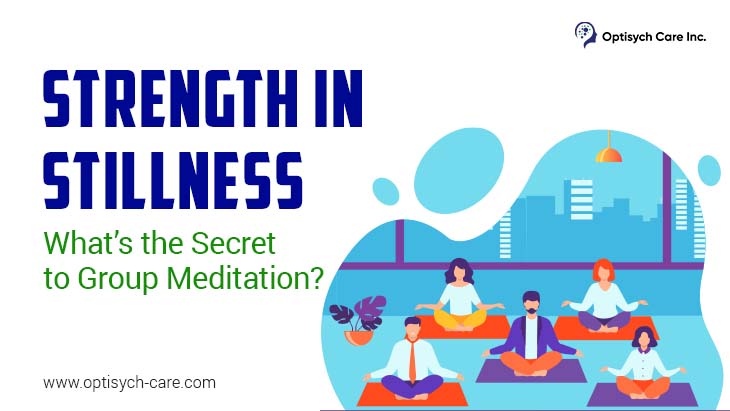Over the past few years, there has been an amazing change in the manner in which we seek mental health support. Therapy, previously characterized by in-person discussions between a therapist and a patient in his office, has been transferred to the internet, and now anyone can seek assistance without leaving their own homes and even when they are on the road. This best online therapy platform for enterprises' couch-screen revolution does not only point to the advances of technology but also to the greater acceptance of mental health assistance as a key component of general wellness.
In a basic definition, virtual therapy is the type of counseling and mental health-related sessions performed using digital techniques via video calls, telephone calls, messaging applications, or even the immersive technology of extended reality (XR). Its emergence is an indication of how there is an increasing necessity to increase convenience, access and privacy in dealing with mental health issues.
Through this guide, we will get to know what virtual therapy is, its operation, the various forms of sessions we have, and the reason why it is becoming the first option for every person and business seeking a way to solve their mental health.
What Is Virtual Therapy?
The notion of virtual therapy, or teletherapy or online counseling enables people to engage licensed mental health professionals online over secure digital platforms. Virtual sessions can occur at any location as long as the internet connection is good, as opposed to traditional therapy, where one has to travel to an office.
It involves various formats:
Video sessions: the most similar to face-to-face interactions.
Audio sessions: providing an option of a greater degree of flexibility when video is not desired.
Chat supported by text messages: can be used to provide continuous support throughout the day.
XR-based therapy: to boost interactions by means of immersive technology.
This has made virtual therapy the perfect choice for a busy professional, a remote worker or an employee who prefers to be honest and open in a digital space.
The Rise of Online Therapy
During the pandemic, the need to use online therapy increased significantly, with lockdowns restricting face-to-face care. That which started as a necessity eventually became a choice.
Statistical data indicate that the worldwide usage of virtual therapy platforms has grown more than 200 percent in 2020-2022. Businesses also started to invest in online mental health solutions as they realized the connection between the welfare of employees and their productivity.
Other than figures, the therapeutic stigma has been slowly fading away. With online platforms, there is anonymity and discretion with which employees seeking help have more ease without being judged.
How Virtual Therapy Works
Virtual therapy is supposed to be easy and simplistic:
Selecting a Platform: The user gets to pick a therapy platform with licensed professionals and guaranteed security.
Booking & Matching: Numerous sites employ algorithms to find a therapist and a client who are a good match according to their needs, preferences, and goals.
Secure Sessions: Sessions will be implemented using encrypted video, audio or chat portals to keep the session confidential.
Continual Support: The support is completed with such features as progress tracking, reminders, and follow-up resources.
Regarding enterprises, the optimal online therapy platform is one that is HIPAA-compliant, provides solid data security, and can be easily integrated with the workplace wellness programs.
Virtual therapy sessions can be of different types.
The virtual therapy has a broad spectrum of services:
Individual Therapy: One-on-one sessions for individual issues such as stress, anxiety or depression.
Couples or Relationships Counseling: Assistance to the couples in resolving conflicts, communication problems, and emotional sustenance.
Group Therapy: Teams or groups that have had experiences together during group sessions.
Specialized Sessions Cognitive Behavioral Therapy (CBT), mindfulness practices, trauma counseling, and others.
This diversity is a guarantee that virtual therapy platforms may address diverse needs, both personal and professional.
Benefits of Virtual Therapy
There are several benefits of virtual therapy that make it an appealing alternative both to individuals and organizations:
Comfort and Time Saving: The employees will be able to schedule sessions during a break or even after work, without having to commute.
Broader Reach: Businesses are able to reach professionals around the globe.
Comfort: It is common to open up when one is in a familiar environment.
Cost-Effectiveness: Online therapy can be quite cheap, in contrast to conventional therapy.
In the case of enterprises that are interested in the finest online therapy platform, these advantages can be directly translated into great levels of engagement of employees, decreased absenteeism, and increased productivity.
Challenges and Limitations
Although virtual therapy is a revolutionary one, it is not without challenges:
Technical Problems: Bad internet or gadget difficulties can interfere with sessions.
Minor Nonverbal Cues: Body language is a significant aspect of therapy that might not be entirely captured on the Internet.
In-Person Is Needed: It is possible that severe mental health cases still need conventional care.
The recognition of these limitations also assists users in making realistic expectations and making hybrid models when needed.
Preparations for a Virtual Therapy Session.
In order to optimize virtual therapy:
Create a Personal Space: It is important to ensure that it is a distraction-free and quiet space.
Check Your Tech: Does the connection work well, and does it have an internet connection?
Get Mentally Ready: Be open-minded during the session and willing to join it.
Note It Down: You should make notes about the things that you have learned and what you have done by the conclusion of each session.
Online counseling can be enhanced with the help of a bit of preparation.
Factoring in the Right Virtual Therapist.
The process of selecting a therapist is the one that makes therapy a success. Consider these steps:
Check Credentialing: Check the licensing and experience of therapists.
Check Platform Reviews: Search for testimonials and case studies.
Style of Therapy Match: There are those who enjoy the structured approach of CBT and those who enjoy the mindfulness or holistic approach.
In the case of enterprises, the online therapy platform best suited to enterprises offers a network of therapists, which is curated, and therefore guarantees consistency and quality of the workforce.
The Future of Virtual Therapy.
Virtual therapy is also in its early stages of development, and there is a promising future:
AI Therapy Assistants: Assistance with rapid assistance and screening prior to sessions.
XR Immersive Therapy: Developing simulations to rehearse coping strategies.
Wellness at Workplace Integration Therapy: Therapy applied in employee assistance programs.
Hybrid Models: The hybrid model involves a combination of both the flexibility of the virtual care and the depth of the in-person therapy when necessary.
These changes show that internet therapy is not a transient trend but a permanent shift in mental therapy.
Conclusion
Mental health support adjusting to modern lifestyles is expressed through the transition to virtual-based therapy rather than traditional therapy. Therapy today is no longer limited to the physical office as more and more formats are made flexible and enterprise-centric. Now it is merely a click, and individuals and organizations can prioritize well-being with a lot of ease.
Confidentiality, flexibility, and evidence-based care should be combined in a suitable solution for companies seeking the most appropriate online therapy platform to utilize in their enterprises. Digital mental health support is not a wellness project but a business opportunity.
When you are finally done with the idea of having a credible solution that does not compromise technology by adding compassion, then implement Optisych Care, which you can trust with taking couch-to-screen therapy.






Leave a reply